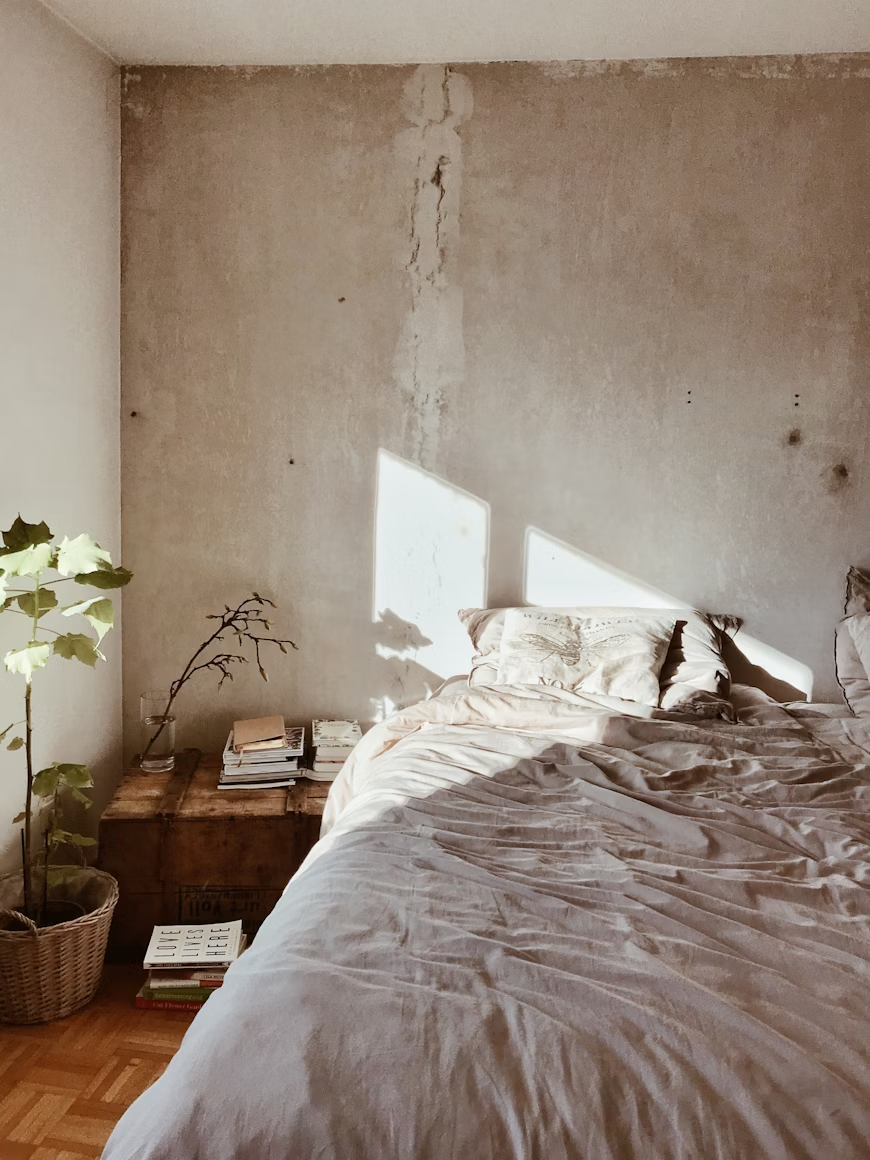[{"id":2417,"link":"https:\/\/selfmadeglow.com\/2025\/12\/21\/7-ideas-for-a-beautiful-productive-desk-workspace\/","name":"7-ideas-for-a-beautiful-productive-desk-workspace","thumbnail":{"url":"https:\/\/i0.wp.com\/selfmadeglow.com\/wp-content\/uploads\/2025\/12\/image_2025-12-21_152410796.png?fit=721%2C923&ssl=1","alt":""},"title":"7 Ideas for a Beautiful & Productive Desk Workspace","author":{"name":"SelfMadeGlow","link":"https:\/\/selfmadeglow.com\/author\/dariatiganas04\/"},"date":"Dec 21, 2025","dateGMT":"2025-12-21 20:00:48","modifiedDate":"2025-12-21 20:36:54","modifiedDateGMT":"2025-12-21 20:36:54","commentCount":"0","commentStatus":"open","categories":{"coma":"<a href=\"https:\/\/selfmadeglow.com\/category\/lifestyle\/\" rel=\"category tag\">Lifestyle<\/a>","space":"<a href=\"https:\/\/selfmadeglow.com\/category\/lifestyle\/\" rel=\"category tag\">Lifestyle<\/a>"},"taxonomies":{"post_tag":""},"readTime":{"min":1,"sec":39},"status":"publish","excerpt":"It's time to transform that neglected mess on your desk."},{"id":2402,"link":"https:\/\/selfmadeglow.com\/2025\/12\/01\/how-to-survive-an-all-nighter-in-college\/","name":"how-to-survive-an-all-nighter-in-college","thumbnail":{"url":"https:\/\/i0.wp.com\/selfmadeglow.com\/wp-content\/uploads\/2025\/12\/image-2.png?fit=1125%2C750&ssl=1","alt":""},"title":"How to Survive an All Nighter in College","author":{"name":"SelfMadeGlow","link":"https:\/\/selfmadeglow.com\/author\/dariatiganas04\/"},"date":"Dec 1, 2025","dateGMT":"2025-12-01 22:49:03","modifiedDate":"2025-12-01 22:49:05","modifiedDateGMT":"2025-12-01 22:49:05","commentCount":"0","commentStatus":"open","categories":{"coma":"<a href=\"https:\/\/selfmadeglow.com\/category\/lifestyle\/\" rel=\"category tag\">Lifestyle<\/a>","space":"<a href=\"https:\/\/selfmadeglow.com\/category\/lifestyle\/\" rel=\"category tag\">Lifestyle<\/a>"},"taxonomies":{"post_tag":""},"readTime":{"min":6,"sec":33},"status":"publish","excerpt":"For those busy exam seasons."},{"id":2397,"link":"https:\/\/selfmadeglow.com\/2025\/12\/01\/is-caffeine-good-for-your-skin-the-benefits-and-risks\/","name":"is-caffeine-good-for-your-skin-the-benefits-and-risks","thumbnail":{"url":"https:\/\/i0.wp.com\/selfmadeglow.com\/wp-content\/uploads\/2025\/12\/pexels-ngqah83-885021.jpg?fit=1365%2C2048&ssl=1","alt":""},"title":"Is Caffeine Good for Your Skin? The Benefits and Risks","author":{"name":"SelfMadeGlow","link":"https:\/\/selfmadeglow.com\/author\/dariatiganas04\/"},"date":"Dec 1, 2025","dateGMT":"2025-12-01 01:08:49","modifiedDate":"2025-12-01 01:09:21","modifiedDateGMT":"2025-12-01 01:09:21","commentCount":"0","commentStatus":"open","categories":{"coma":"<a href=\"https:\/\/selfmadeglow.com\/category\/debunked\/\" rel=\"category tag\">#DEBUNKED<\/a>","space":"<a href=\"https:\/\/selfmadeglow.com\/category\/debunked\/\" rel=\"category tag\">#DEBUNKED<\/a>"},"taxonomies":{"post_tag":""},"readTime":{"min":2,"sec":52},"status":"publish","excerpt":"Break free of breakouts."},{"id":2370,"link":"https:\/\/selfmadeglow.com\/2025\/11\/26\/why-is-my-skin-suddenly-breaking-out-12-hidden-causes-and-how-to-fix-each-one\/","name":"why-is-my-skin-suddenly-breaking-out-12-hidden-causes-and-how-to-fix-each-one","thumbnail":{"url":"https:\/\/i0.wp.com\/selfmadeglow.com\/wp-content\/uploads\/2025\/11\/pexels-tara-winstead-6693988-scaled-e1764134409964.jpg?fit=1667%2C1064&ssl=1","alt":""},"title":"Why Is My Skin Suddenly Breaking Out? 12 Hidden Causes (And How to Fix Each One)","author":{"name":"SelfMadeGlow","link":"https:\/\/selfmadeglow.com\/author\/dariatiganas04\/"},"date":"Nov 26, 2025","dateGMT":"2025-11-26 01:24:12","modifiedDate":"2025-11-26 05:24:28","modifiedDateGMT":"2025-11-26 05:24:28","commentCount":"0","commentStatus":"open","categories":{"coma":"<a href=\"https:\/\/selfmadeglow.com\/category\/skincare\/\" rel=\"category tag\">Skincare<\/a>","space":"<a href=\"https:\/\/selfmadeglow.com\/category\/skincare\/\" rel=\"category tag\">Skincare<\/a>"},"taxonomies":{"post_tag":""},"readTime":{"min":5,"sec":18},"status":"publish","excerpt":"Achieve clear skin."},{"id":2390,"link":"https:\/\/selfmadeglow.com\/2025\/10\/26\/how-to-consume-caffeine-in-a-healthy-way\/","name":"how-to-consume-caffeine-in-a-healthy-way","thumbnail":{"url":"https:\/\/i0.wp.com\/selfmadeglow.com\/wp-content\/uploads\/2025\/11\/pexels-cup-of-couple-8474181-scaled.jpg?fit=1707%2C2560&ssl=1","alt":""},"title":"How to Consume Caffeine in a Healthy Way","author":{"name":"SelfMadeGlow","link":"https:\/\/selfmadeglow.com\/author\/dariatiganas04\/"},"date":"Oct 26, 2025","dateGMT":"2025-10-26 05:59:51","modifiedDate":"2025-11-26 06:00:56","modifiedDateGMT":"2025-11-26 06:00:56","commentCount":"1","commentStatus":"open","categories":{"coma":"<a href=\"https:\/\/selfmadeglow.com\/category\/wellness\/\" rel=\"category tag\">Wellness<\/a>","space":"<a href=\"https:\/\/selfmadeglow.com\/category\/wellness\/\" rel=\"category tag\">Wellness<\/a>"},"taxonomies":{"post_tag":""},"readTime":{"min":4,"sec":18},"status":"publish","excerpt":"Stay energized."},{"id":2223,"link":"https:\/\/selfmadeglow.com\/2025\/06\/25\/bloat-no-more-5-daily-habits-for-better-lymphatic-flow\/","name":"bloat-no-more-5-daily-habits-for-better-lymphatic-flow","thumbnail":{"url":"https:\/\/i0.wp.com\/selfmadeglow.com\/wp-content\/uploads\/2025\/06\/image_2025-06-29_144658888-e1751222948766.png?fit=486%2C357&ssl=1","alt":""},"title":"Bloat No More: 5 Daily Habits for Better Lymphatic Flow","author":{"name":"SelfMadeGlow","link":"https:\/\/selfmadeglow.com\/author\/dariatiganas04\/"},"date":"Jun 25, 2025","dateGMT":"2025-06-25 17:56:09","modifiedDate":"2025-07-01 04:42:41","modifiedDateGMT":"2025-07-01 04:42:41","commentCount":"0","commentStatus":"open","categories":{"coma":"<a href=\"https:\/\/selfmadeglow.com\/category\/wellness\/\" rel=\"category tag\">Wellness<\/a>","space":"<a href=\"https:\/\/selfmadeglow.com\/category\/wellness\/\" rel=\"category tag\">Wellness<\/a>"},"taxonomies":{"post_tag":""},"readTime":{"min":1,"sec":39},"status":"publish","excerpt":"Flow state."},{"id":1983,"link":"https:\/\/selfmadeglow.com\/2025\/06\/20\/how-to-design-a-morning-routine-that-serves-you\/","name":"how-to-design-a-morning-routine-that-serves-you","thumbnail":{"url":"https:\/\/i0.wp.com\/selfmadeglow.com\/wp-content\/uploads\/2025\/06\/image_2025-06-27_174259683-e1751060677260.png?fit=680%2C493&ssl=1","alt":""},"title":"How to Design a Morning Routine That Serves You","author":{"name":"SelfMadeGlow","link":"https:\/\/selfmadeglow.com\/author\/dariatiganas04\/"},"date":"Jun 20, 2025","dateGMT":"2025-06-20 20:32:09","modifiedDate":"2025-06-29 18:41:21","modifiedDateGMT":"2025-06-29 18:41:21","commentCount":"2","commentStatus":"open","categories":{"coma":"<a href=\"https:\/\/selfmadeglow.com\/category\/am\/\" rel=\"category tag\">AM Routines<\/a>","space":"<a href=\"https:\/\/selfmadeglow.com\/category\/am\/\" rel=\"category tag\">AM Routines<\/a>"},"taxonomies":{"post_tag":""},"readTime":{"min":5,"sec":40},"status":"publish","excerpt":"Not the other way around."},{"id":1957,"link":"https:\/\/selfmadeglow.com\/2025\/06\/15\/cold-showers-transformed-my-brain-its-backed-by-research\/","name":"cold-showers-transformed-my-brain-its-backed-by-research","thumbnail":{"url":"https:\/\/i0.wp.com\/selfmadeglow.com\/wp-content\/uploads\/2025\/06\/image_2025-06-26_204418225.png?fit=1125%2C750&ssl=1","alt":"Credit: Rodion Kutsaiev on Pexels"},"title":"Cold Showers Transformed My Brain. It\u2019s Backed by Research.","author":{"name":"SelfMadeGlow","link":"https:\/\/selfmadeglow.com\/author\/dariatiganas04\/"},"date":"Jun 15, 2025","dateGMT":"2025-06-15 00:38:45","modifiedDate":"2025-06-27 20:32:45","modifiedDateGMT":"2025-06-27 20:32:45","commentCount":"3","commentStatus":"open","categories":{"coma":"<a href=\"https:\/\/selfmadeglow.com\/category\/featured\/\" rel=\"category tag\">Featured<\/a>","space":"<a href=\"https:\/\/selfmadeglow.com\/category\/featured\/\" rel=\"category tag\">Featured<\/a>"},"taxonomies":{"post_tag":""},"readTime":{"min":1,"sec":30},"status":"publish","excerpt":"Nature's brain booster."},{"id":1890,"link":"https:\/\/selfmadeglow.com\/2025\/06\/09\/taking-a-real-day-off-how-to-actually-unwind\/","name":"taking-a-real-day-off-how-to-actually-unwind","thumbnail":{"url":"https:\/\/i0.wp.com\/selfmadeglow.com\/wp-content\/uploads\/2025\/06\/image_2025-06-24_201859978.png?fit=1260%2C660&ssl=1","alt":""},"title":"Taking a Real Day Off: How to Actually Unwind","author":{"name":"SelfMadeGlow","link":"https:\/\/selfmadeglow.com\/author\/dariatiganas04\/"},"date":"Jun 9, 2025","dateGMT":"2025-06-09 00:18:39","modifiedDate":"2025-06-27 01:07:45","modifiedDateGMT":"2025-06-27 01:07:45","commentCount":"1","commentStatus":"open","categories":{"coma":"<a href=\"https:\/\/selfmadeglow.com\/category\/featured\/\" rel=\"category tag\">Featured<\/a>","space":"<a href=\"https:\/\/selfmadeglow.com\/category\/featured\/\" rel=\"category tag\">Featured<\/a>"},"taxonomies":{"post_tag":""},"readTime":{"min":3,"sec":30},"status":"publish","excerpt":"Time to relax."},{"id":1673,"link":"https:\/\/selfmadeglow.com\/2025\/06\/02\/the-best-natural-sun-moisturizers-for-summer\/","name":"the-best-natural-sun-moisturizers-for-summer","thumbnail":{"url":"https:\/\/i0.wp.com\/selfmadeglow.com\/wp-content\/uploads\/2025\/06\/image-7.png?fit=1470%2C980&ssl=1","alt":""},"title":"The Best Natural Sun Moisturizers for Summer","author":{"name":"SelfMadeGlow","link":"https:\/\/selfmadeglow.com\/author\/dariatiganas04\/"},"date":"Jun 2, 2025","dateGMT":"2025-06-02 19:37:56","modifiedDate":"2025-06-28 04:01:51","modifiedDateGMT":"2025-06-28 04:01:51","commentCount":"1","commentStatus":"open","categories":{"coma":"<a href=\"https:\/\/selfmadeglow.com\/category\/featured\/\" rel=\"category tag\">Featured<\/a>","space":"<a href=\"https:\/\/selfmadeglow.com\/category\/featured\/\" rel=\"category tag\">Featured<\/a>"},"taxonomies":{"post_tag":""},"readTime":{"min":2,"sec":29},"status":"publish","excerpt":"Get that summer glow."},{"id":1609,"link":"https:\/\/selfmadeglow.com\/2025\/05\/26\/the-collagen-beauty-broth-simple-delicious-and-healthy\/","name":"the-collagen-beauty-broth-simple-delicious-and-healthy","thumbnail":{"url":"https:\/\/i0.wp.com\/selfmadeglow.com\/wp-content\/uploads\/2025\/06\/image_2025-05-31_205217387.png?fit=600%2C374&ssl=1","alt":""},"title":"The Collagen Beauty Broth: Made Simple and Rich in Nutrients","author":{"name":"SelfMadeGlow","link":"https:\/\/selfmadeglow.com\/author\/dariatiganas04\/"},"date":"May 26, 2025","dateGMT":"2025-05-26 00:44:01","modifiedDate":"2025-06-28 00:28:26","modifiedDateGMT":"2025-06-28 00:28:26","commentCount":"2","commentStatus":"open","categories":{"coma":"<a href=\"https:\/\/selfmadeglow.com\/category\/beauty\/\" rel=\"category tag\">Beauty<\/a>","space":"<a href=\"https:\/\/selfmadeglow.com\/category\/beauty\/\" rel=\"category tag\">Beauty<\/a>"},"taxonomies":{"post_tag":""},"readTime":{"min":1,"sec":38},"status":"publish","excerpt":"Bone broth goodness."},{"id":1600,"link":"https:\/\/selfmadeglow.com\/2025\/05\/20\/rice-water-hair-rinse-benefits-myths-and-what-to-know\/","name":"rice-water-hair-rinse-benefits-myths-and-what-to-know","thumbnail":{"url":"https:\/\/selfmadeglow.com\/wp-content\/uploads\/2025\/06\/Rice-Water-Rinse-Proven-Benefits-and-Myths-SelfMadeGlow-scaled.avif","alt":""},"title":"Rice Water: Proven Benefits & Myths You Need to Know","author":{"name":"SelfMadeGlow","link":"https:\/\/selfmadeglow.com\/author\/dariatiganas04\/"},"date":"May 20, 2025","dateGMT":"2025-05-20 00:14:12","modifiedDate":"2025-06-27 01:11:07","modifiedDateGMT":"2025-06-27 01:11:07","commentCount":"0","commentStatus":"open","categories":{"coma":"<a href=\"https:\/\/selfmadeglow.com\/category\/beauty\/\" rel=\"category tag\">Beauty<\/a>","space":"<a href=\"https:\/\/selfmadeglow.com\/category\/beauty\/\" rel=\"category tag\">Beauty<\/a>"},"taxonomies":{"post_tag":""},"readTime":{"min":2,"sec":15},"status":"publish","excerpt":"DIY shine for your hair."}]


